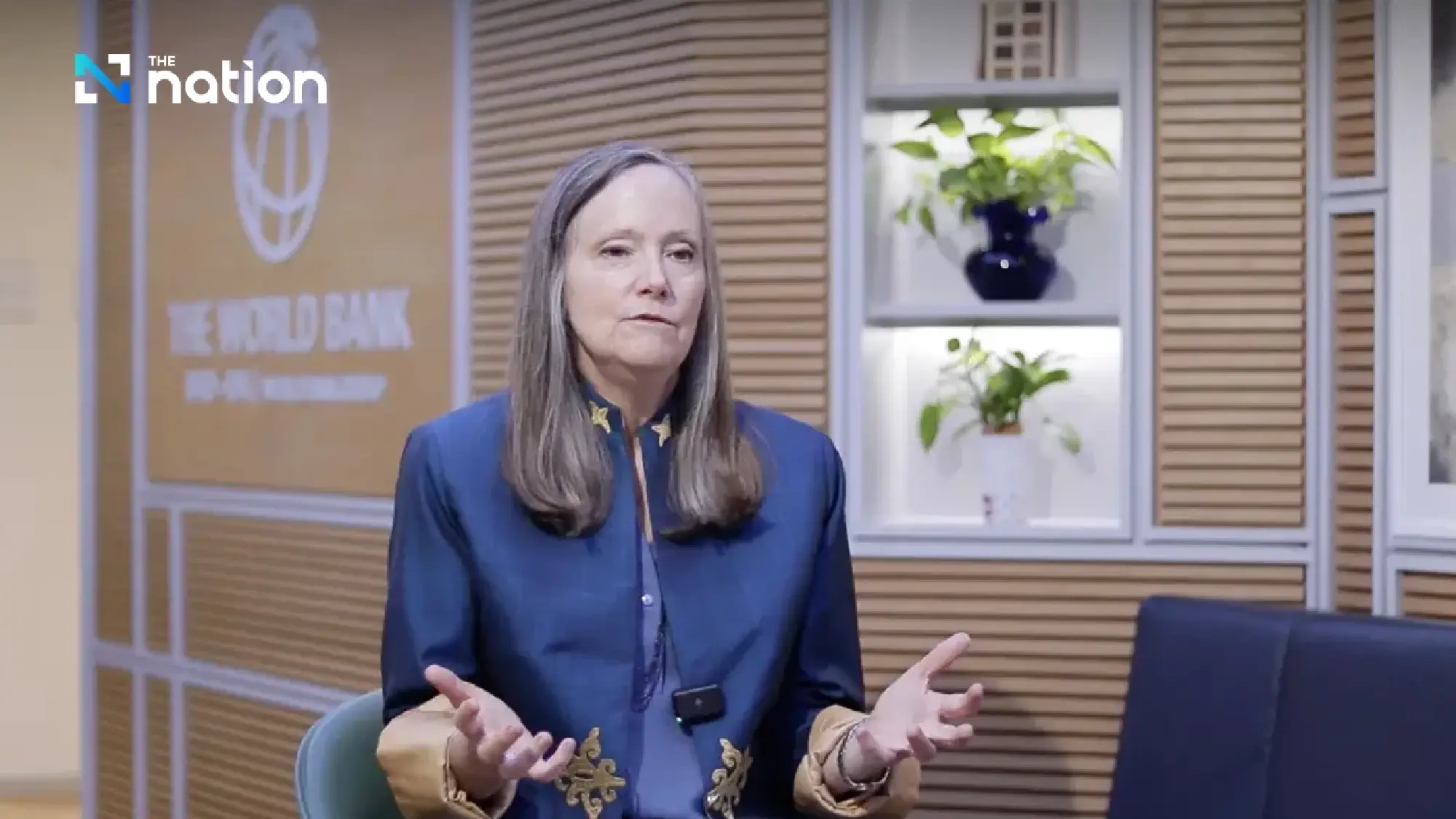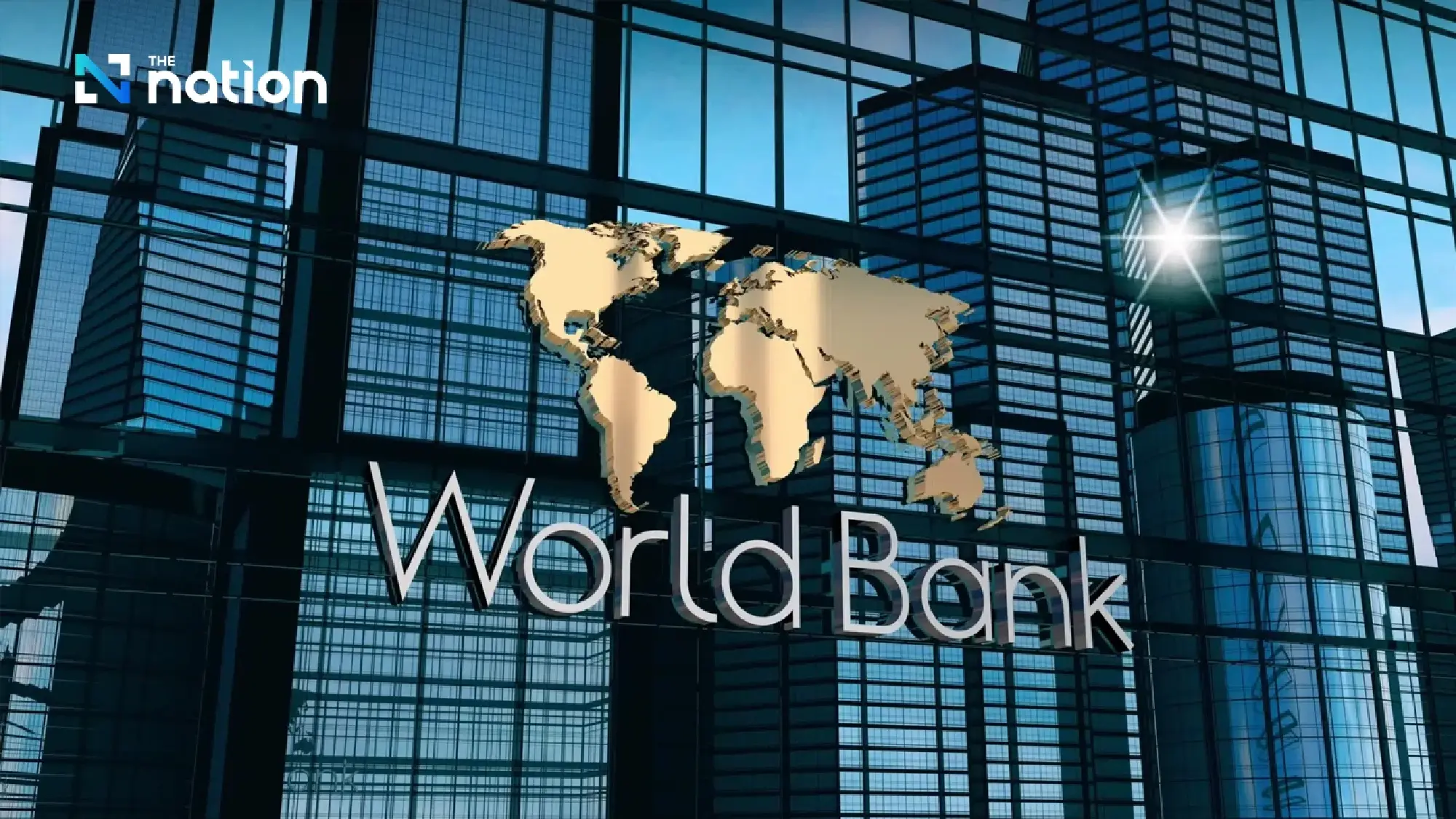
Escaping the trap requires a bet on a new economy
While the challenges may seem daunting, the World Bank executive views Thailand’s situation with cautious optimism. She emphasises focusing on the facts: addressing weaknesses and reinforcing existing strengths.
The first step, according to Good, is for Thailand to “stop holding itself back.”
Good suggests that Thailand should capitalise on its current strengths, such as its strategic position at the heart of ASEAN, its robust digital infrastructure, and the global reputation of Thai products, to expand into the five future industries:
- Digital Services
- Advanced & Green Manufacturing
- Agribusiness
- Sustainable and Health-Oriented Tourism
- Creative Economy
However, in order to drive this new economy forward, Thailand must begin by opening up the service sector and reducing barriers to competition, areas where Thailand still lags behind its neighbours.
Good pointed out that Thailand’s service sector remains more closed off than many other countries in the region, despite being one of the fastest-growing sectors in the world and ASEAN.
Opening up the service sector would not only attract foreign investment but also provide opportunities for new Thai entrepreneurs to compete in the digital innovation market.
Comparing Thailand to Vietnam, Good observed that Vietnam has welcomed foreign direct investment (FDI) with a different approach, particularly by opening up its service sector. As a result, the value of trade in the service sector has increased by 2.9%, alongside similar growth in downstream manufacturing, achieving a double benefit from opening the service sector.
Thailand can start with immediate, achievable actions or Quick Wins, such as simplifying the approval process for new technology businesses, promoting green finance systems, and strategically investing public funds in digital infrastructure, clean energy, and water systems. These actions would lay the groundwork for future data centres and digital industries.

Developing ‘human capital’: another key to success
While Thailand boasts a universal healthcare system and globally lauded basic education, what is lacking is the “skills of the workforce of the future,” which is a critical component of the new economy.
Good stressed that development from this point forward should not focus on producing goods, but on creating opportunities for the new generation of workers in a rapidly changing technological landscape.
“The economy of the future will not just be about producing goods anymore; it will be about producing opportunities for people,” she said.
The World Bank executive reaffirmed that “human capital” is the heart of long-term growth, especially for countries like Thailand, where the birth rate is declining.
The importance of reforming education and labour markets—necessary to counter demographic pressures, enhance future economic potential, and create better jobs—was emphasised in the Thailand Economic Monitor report of July 2025.
“When your population is growing slower than your neighbours, the only way to keep up is through smart investment in the children you have,” Good added.
Looking at Vietnam, Good highlighted that the country has adopted a model similar to China, aiming to become “the world’s manufacturing hub.” This has been achievable due to its large labour force and lower wages compared to Thailand.
On the other hand, Thailand faces several limitations when it comes to investment and production, including labour constraints and rising costs. However, there are still opportunities if Thailand shifts its focus to investing in people for the future of the Thai economy.
Thailand retains a competitive advantage in its robust digital infrastructure, including the Digital ID system, which could serve as the foundation for systematically enhancing the skills of the workforce.
Additionally, Thailand excels in promoting “inclusive growth”—not just economic growth. This has always been a strength, even if certain policies have had mixed results. The idea that growth should not leave anyone behind remains ingrained in the country’s collective consciousness.
In simple terms, Thailand must “unlock potential in both people and regions,” avoiding the concentration of opportunities solely in Bangkok.
Thailand still has vast untapped opportunities, and as the World Bank’s Country Director for Thailand and Myanmar, Good has travelled to several regions to discuss sensible investments with both the government and private sector, aiming to decentralise the “centres of education and growth” to multiple locations.
This may be an opportunity for the new government to leverage the political shift and the upcoming election in 2025 to push forward new policies with a broader vision. Because now is a time of opportunity.
Proposing ‘Quick Wins’ to attract foreign investment
Regarding “Quick Wins” that can deliver rapid results, Good stated that Thailand must “stop stopping itself,” which is hindering the arrival of “innovative entrepreneurs,” both local and foreign.
Opening up the growing service sector doesn’t require significant investment; it requires a decision to take action. Many companies are eager to enter Thailand, drawn by its stability—both economically and politically—compared to other countries in the region.
Another key aspect is improving the ease of doing business to make it easier to start a business, attracting high-value jobs and new technologies to Thailand.
Currently, “there are too many obstacles.” Many companies have come close to investing in Thailand but ultimately chose to invest in neighbouring countries instead, due to cumbersome processes.
Despite the country’s many strengths, if the government can reduce legal obstacles and streamline the process for tech businesses, it would be a “Quick Fix that can truly change the game.”
This would require no major financial investment and could help establish Thailand as the “digital hub of the region.”
